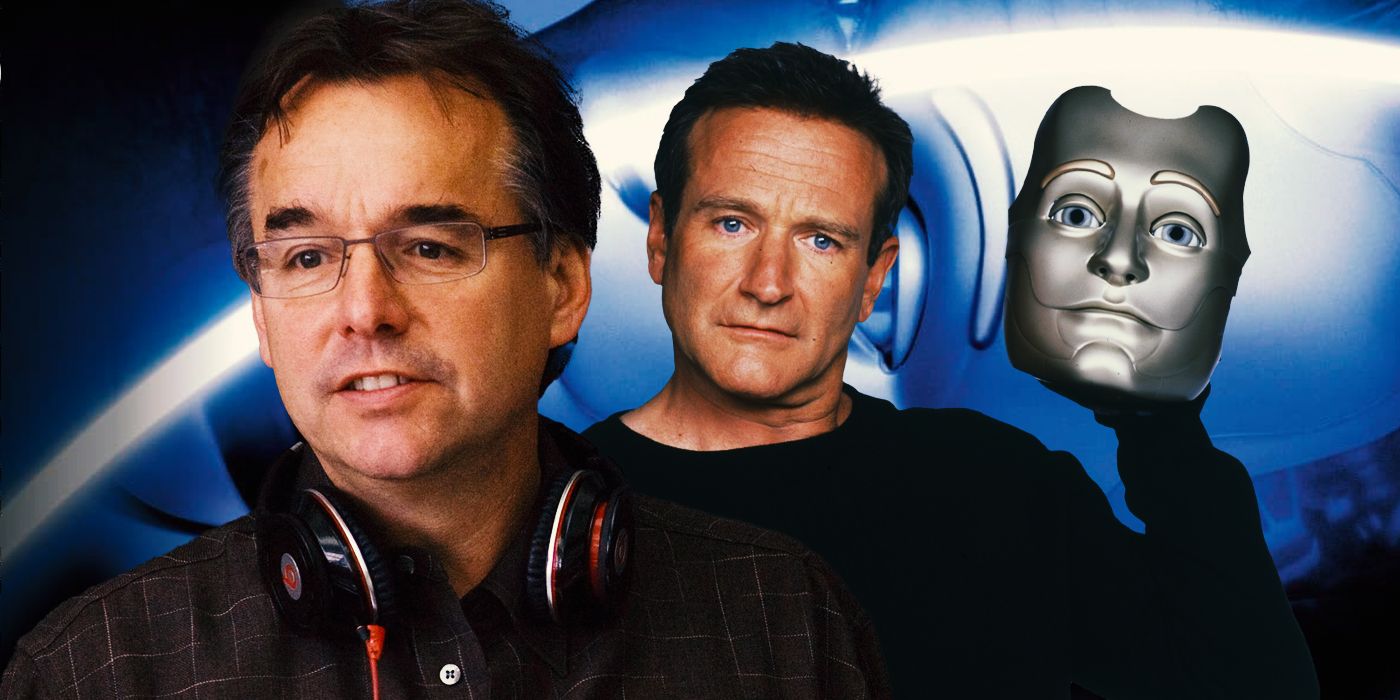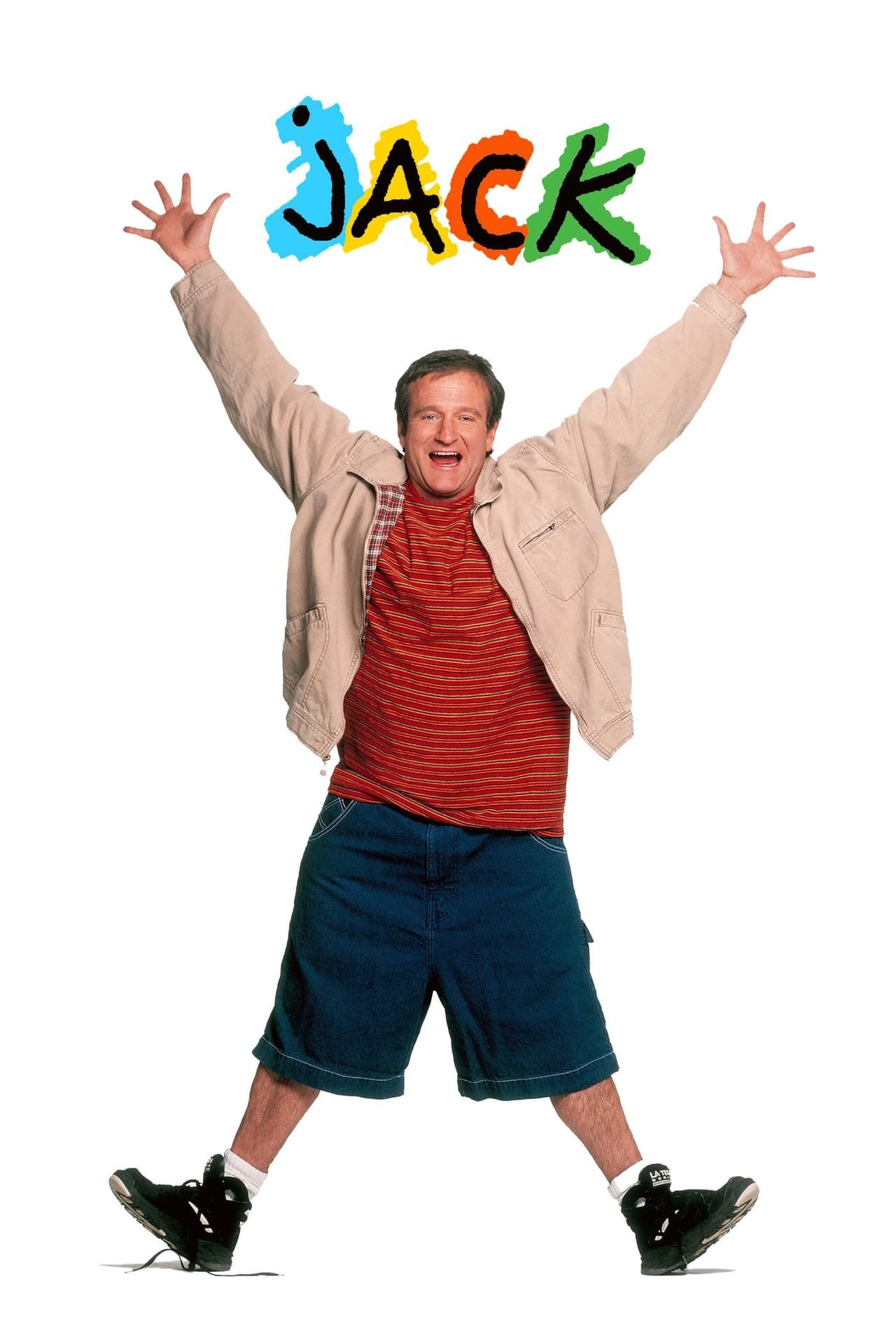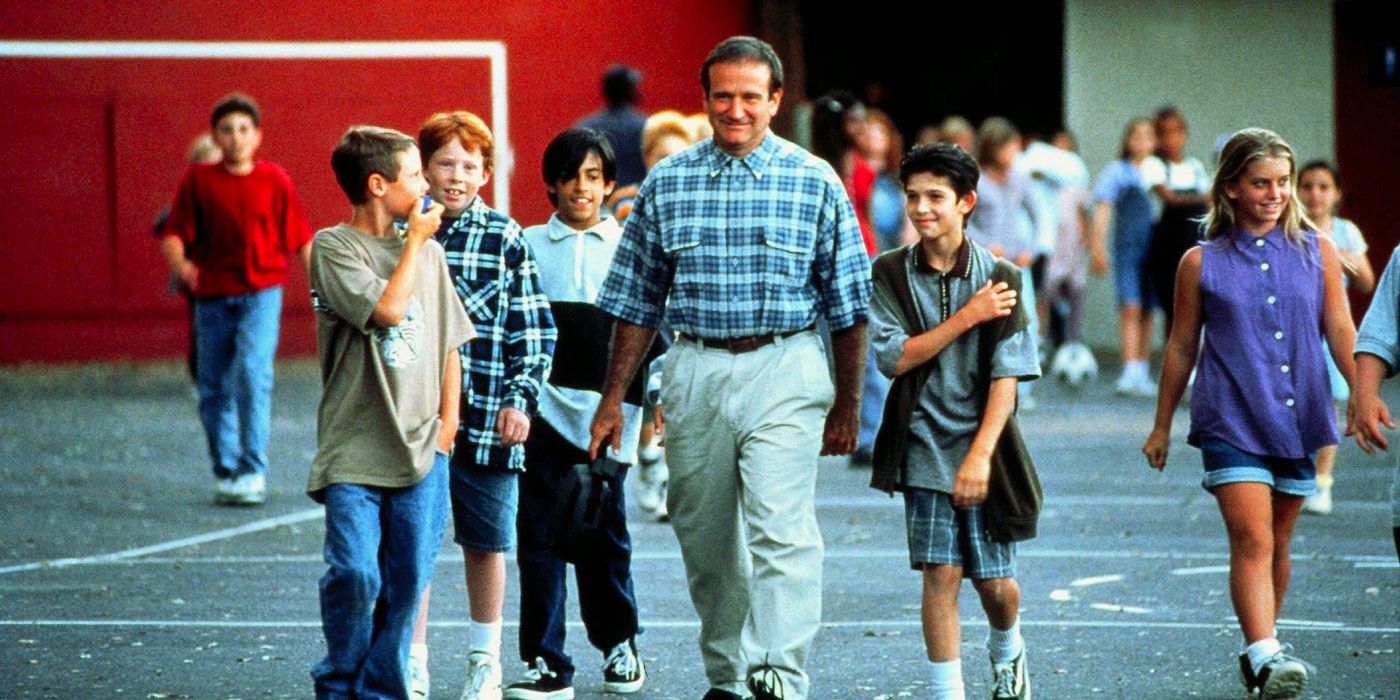It’s the film that causes the ultimate double take. “Wait, who directed Jack?” is a question that begs repeating upon the discovery that Francis Ford Coppola was responsible for this critically derided Disney coming-of-age dramedy starring Robin Williams and Jennifer Lopez. The director, master of dark and punishing stories about the American Dream and the decay of humanity in The Godfather and Apocalypse Now, should’ve been ill-suited to this concept, about a 10-year-old boy with an abnormal condition who grows into the body of a 40-year-old. While critics in 1996 decried Coppola for stooping to such lows by making Jack, the film, while ultimately more unsuccessful than not, speaks to his singular vision, and its text shares unforeseen similarities to his canon of classics.
Francis Ford Coppola Took a Bizarre When He Made Coming-of-Age Body-Swap Dramedy in ‘Jack’
Francis Ford Coppola is both an uncompromising auteur and a poor financial manager, two components that cannot coexist, which explains why it took the director roughly 40 years to finally realize his self-funded, audacious passion project, Megalopolis, on the big screen. Having filed for bankruptcy three times, Coppola had to play the game of Hollywood filmmaking by taking for-hire gigs, such as an adaptation of John Grisham‘s The Rainmaker and a Michael Jackson Disney theme park short, Captain EO. On the surface, Jack qualifies as a shameless money-grab for Coppola, but its subtext, as well as Coppola’s ardent defense of the film, suggests otherwise. Riffing on Big, the film chronicles the rapidly aging Jack Powell (Williams) as he begins 5th grade after years of homeschooling.
Jack, also starring Jennifer Lopez as the titular character’s teacher and Diane Lane as his mother, was viewed as the Fredo Corleone of Coppola’s filmography, feeling as heartbroken as Michael Corleone by the director’s betrayal of his quality taste. Although it sits at an abysmal 17% on Rotten Tomatoes, Coppola has no embarrassment about the final product. “I find Jack sweet and amusing. I don’t dislike it as much as everyone,” Coppola said upon reflection, dumbfounded by its overwhelmingly negative response. Because The Godfather and Apocalypse Now are so totemic in the history of cinema, it’s easy for the public to pigeonhole him to gritty and brooding stories about violence and destruction, but Coppola’s eclectic filmography demonstrates his refined and sensitive view of the world. For Coppola, who once suffered from polio and witnessed his childhood slip away, Jack struck a personal chord. On a somber note, the film helped him work through the anguish of the death of his son, Gio Coppola.
‘Jack’ Reflects Francis Ford Coppola’s Examination of Aging and Time
This is not to suggest that Jack is an overlooked, misunderstood masterpiece, as the array of criticism lobbied at the film still apply. The film is a 24/7 schmaltz factory, insistent on hitting the biggest and broadest emotions at all times. Parents in 1996 were likely looking for answers to whether Jack was suitable for their kids, as its light and maudlin spirit, typical of a family comedy, counters with the film’s PG-13 rating. The tonal imbalance of the film, stuck between a syrupy coming-of-age drama and a farcical comedy, gives it an uncanny energy, and the context of the role — a boy trapped in an adult’s body — offers Robin Williams leeway to perform at his most juvenile, which is an act that eventually wears thin.

Related
The ‘Nosferatu’ producer reflected on his career choices in a recent interview.
If he were in full gonzo mode, akin to a Jim Carrey or Adam Sandler mode, Williams’ childish performance would feel purposeful and validated, but for every silly action, formulated by his familiar but tired improvisation, he forces the audience to sit through stilted and shallow feel-good sentimentality. Jack‘s obvious cousin film, Big, starring Tom Hanks as a kid who undergoes a body swap, is substantially more sophisticated when grappling with the unnerving phenomenon of extreme aging and the sobering realities of adulthood.
Francis Ford Coppola directing a film like Jack was not on anyone’s bingo card before 1996. Then again, no one could’ve predicted that he’d make something as unhinged, unfocused, and esoteric as Megalopolis in 2024. His career and creative sensibilities expand beyond the criminal underworld, but one of the clear throughlines in his work is the meditation on aging and loss of identity. A decade later, Coppola returned to a similar realm in Youth Without Youth, a strange but stirring romantic drama about a man who jumps from age to age. Peggy Sue Got Married, an ’80s teen dramedy, also seems like a drastic pivot, but it deals with fleeting memories and the loss of innocent youthfulness. This fascination can even be found in The Godfather: Part II, as Michael loses sight of himself and his family while reflecting on his father’s ascent to the throne of New York’s gangland. With that in mind, it’s easy to understand why Coppola simply couldn’t refuse the offer to direct Jack.

Jack
- Release Date
-
August 9, 1996
- Runtime
-
113 minutes
- Director
-
Francis Ford Coppola
- Writers
-
James DeMonaco, Gary Nadeau
- Producers
-
Doug Claybourne, Fred Fuchs


